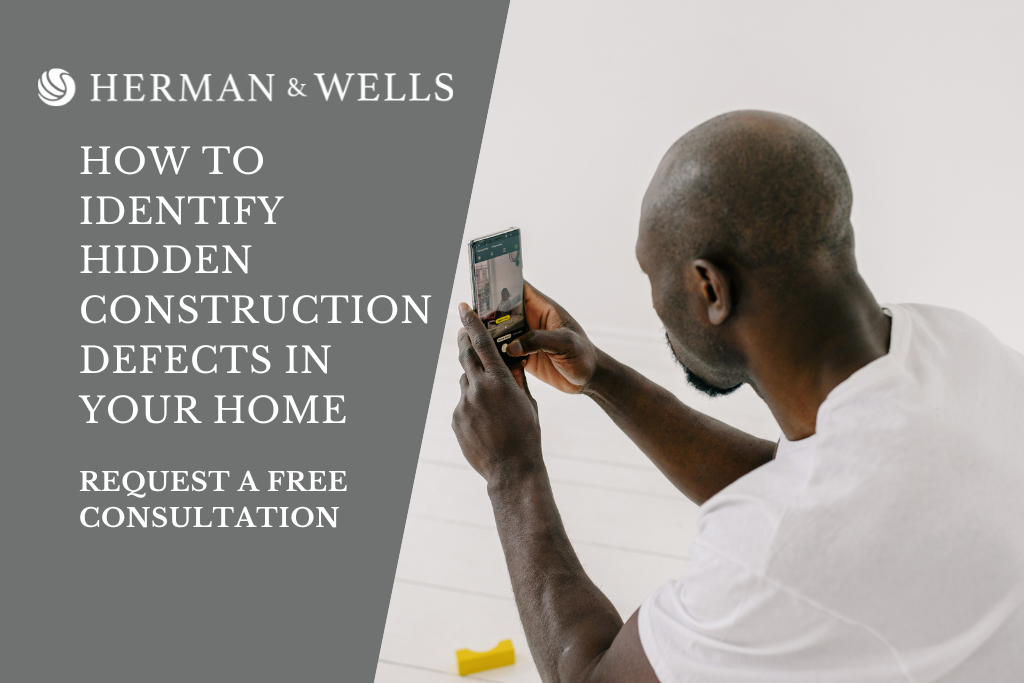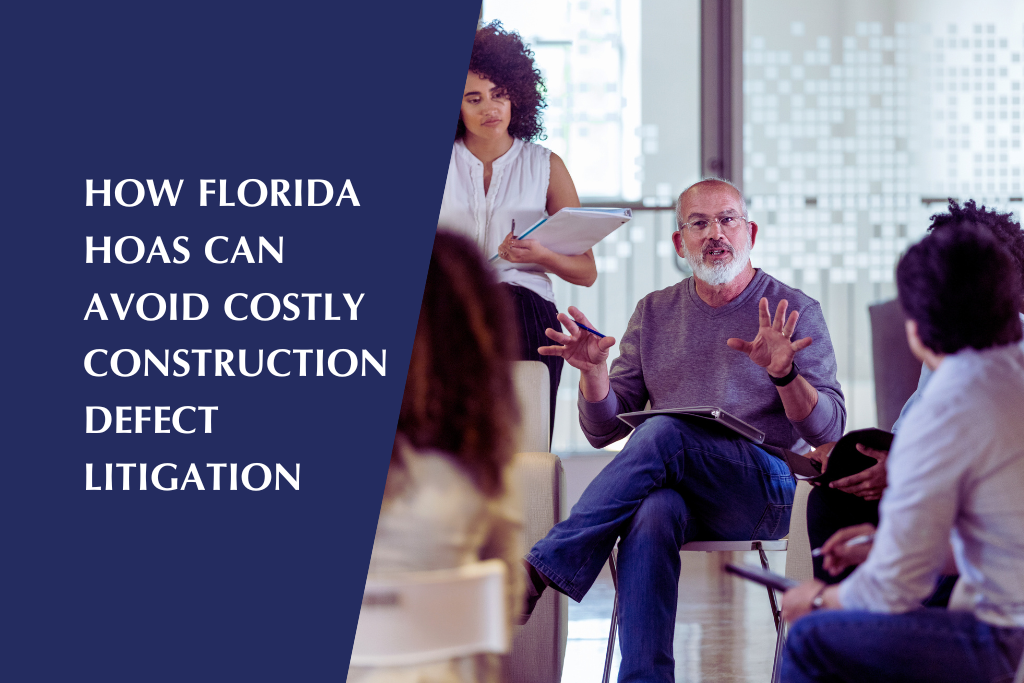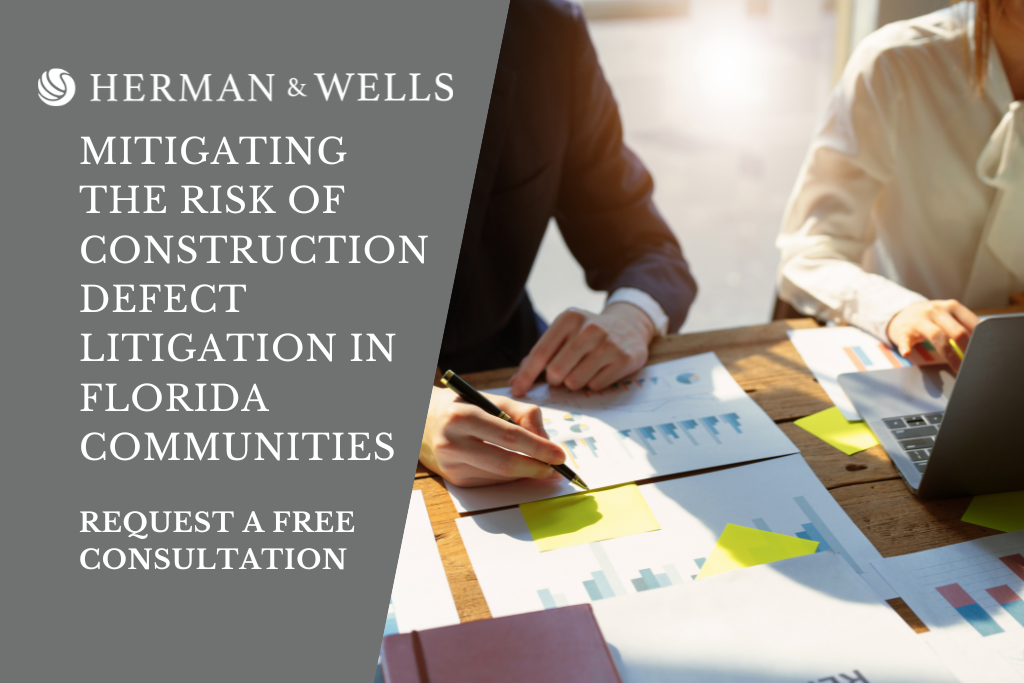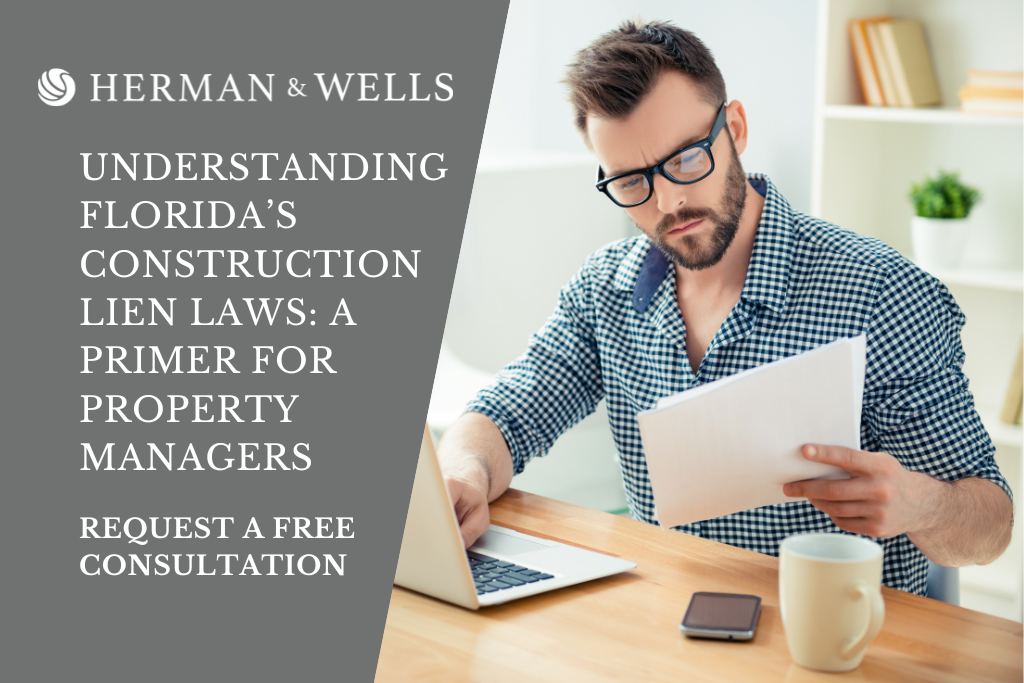Are you facing construction defect issues on your property? Don’t let a latent defect pose serious safety risks and affect the integrity of your structure. At Herman & Wells, our seasoned construction defect attorneys understand the complexities of such issues and are prepared to help. Act now and protect your investment. Call us for a consultation at (727) 821-3195 and let’s address your construction defect concerns together.

The Cliff Notes: Key Takeaways From This Post
- 1Protect Your Property: Early detection and legal intervention are crucial in addressing construction defects to safeguard your property’s value and ensure structural safety.
- 2Expert Legal Support: Herman & Wells brings years of specialized experience in construction law, offering expert guidance and representation to resolve your construction defect issues efficiently.
- 3Immediate Action: Don’t wait for minor defects to escalate into major safety hazards. Contacting Herman & Wells promptly can prevent further damage and protect your property investment.
- 4Comprehensive Services: From initial consultation to litigation, if necessary, our team is dedicated to managing every aspect of your construction defect claim with the utmost professionalism and diligence.
- 5Your Rights Matter: Understanding your rights as a property owner is the first step towards effective resolution of construction defect disputes. Herman & Wells is committed to educating clients and vigorously defending their rights.
Understanding Construction Defects In Florida
A construction defect refers to a flaw from the construction process causing structural element failure and damage. Factors like faulty workmanship, planning, materials, negligence, or site selection can lead to these defects. They manifest as patent (visible) or latent (hidden) defects, mainly design, material, or workmanship issues. Claims often target general contractors despite subcontractor negligence. Legal representation is crucial for disputes. Construction defects fall under Chapter 558 of Florida Statutes, requiring a written notice before legal action.
Common Types of Construction Defects In Florida
Water And Plumbing Issues
Water damage and plumbing issues top the list of the most common construction defects. These are often a result of faulty materials, bad design, or shoddy workmanship. Factors such as soil shifting and foundation problems or inadequate drainage could also contribute to these defects.
Improper Drainage
Defects leading to flooding fall under improper drainage. Design problems with gutters and drainage systems are the culprits here. These defects could manifest inside or outside the house, leading to mold development and structural instabilities when flooding occurs.
Foundation Issues
Foundation issues are a major concern, particularly in Florida. They can be caused by inferior soil, soil erosion, shifting or shrinking soil, among other reasons. The most common manifestations are sinking and shifting foundations, foundation settlement, and foundation cracks. These defects threaten the building’s structural integrity, leading to unstable, leaning walls, and uneven floors.
Electrical Systems
Electrical system defects are another common risk. At best, they might cause power shortages and inconveniences, but at worst, they could lead to dangerous fires and outages. When coupled with water damage or plumbing issues, these defects can pose an extreme risk to the building’s occupants.
Roof Defects
With Florida’s frequent and steady rainstorms, particularly during the hurricane season, roofs are prone to water damage. This could lead to significant structural problems, rot, and mold, which in turn could cause health issues if ignored. Common roof defects include improper roofing installation, missing anti-ponding metal at eaves, exposed roof tiles, broken or chipped roof tiles, and non-draining gutters.
Hot And Cold Spots
Contrary to pop culture references, hot and cold spots in a structure indicate physical defects rather than a paranormal presence. These could be due to faulty doors, windows, insulation, or ductwork. Inadequate sizing or poorly designed ductwork could disrupt air circulation, leading to these hot or cold spots.
Doors, Windows, And Glass
Doors, windows, and glass defects are common and usually arise from material defects. Despite this, builders and contractors can still face claims. These defects can result in improper heating and cooling, for example, an improperly installed door not treated for heat could swell and stick during peak humidity.
Signs Of Hidden Construction Defects
Physical Signs To Watch For
Identifying hidden construction defects requires a vigilant and informed approach. Common physical signs include unusual cracks or bulges in walls, floors, and ceilings that suggest structural movement or failure. Water stains or mold growth can indicate leaks and moisture issues not visible to the naked eye.
Additionally, doors or windows that no longer close properly may reveal foundation problems or other structural irregularities. Being aware of these indicators can help homeowners and inspectors uncover underlying construction issues before they escalate.
Unusual Noises Or Smells
Unusual noises, such as creaking or cracking sound within walls, floors, or ceilings, and peculiar smells, particularly musty or moldy odors, should serve as red flags warning of potential construction defects. These cues could signify underlying issues such as weakened structural integrity or moisture intrusion that calls for immediate professional assessment to prevent further damage or hazard.
Steps To Take If You Suspect Construction Defects
If you suspect there may be construction defects in your property, it is crucial to act swiftly and decisively to mitigate potential damage and ensure the safety and integrity of your building. Taking immediate steps can help address defects before they escalate into more significant issues.
Document Everything
Carefully document any signs or evidence of potential construction defects. This includes taking detailed photographs of the affected areas, recording descriptions of any unusual noises or smells, and noting any changes in the condition over time. This documentation will be invaluable for professionals assessing the issue and can also serve as evidence if legal actions become necessary.
Consult A Professional
Seek the expertise of a qualified building inspector or structural engineer. A professional with experience in identifying construction defects can offer a thorough assessment of the situation, pinpointing underlying causes and recommending appropriate remedial actions. Their expertise ensures that the full extent of the problem is understood and appropriately addressed.
Review Warranties And Contracts
Examine any existing warranties, contracts, or service agreements related to your property’s construction. This review can help you understand what is covered under these agreements and whether you may be entitled to compensation or repair services for the defects discovered. Understanding your legal and contractual rights is a crucial step in addressing construction defects.
Report To Relevant Authorities
Depending on the nature and severity of the detected defects, it may be necessary to report them to relevant local authorities or building regulatory bodies. This step ensures that any legal or safety standards violations are formally acknowledged and can prompt further investigation or enforcement actions if required.
Consider Legal Advice
If the construction defects are severe and result in significant damage or loss, consulting with a legal professional specializing in construction or real estate law may be advisable. An experienced attorney can advise you on your rights and the best course of action, whether it’s pursuing mediation, arbitration, or litigation to resolve the issue and seek compensation.
Taking these steps promptly and thoroughly can significantly impact the resolution of construction defect issues. Remaining proactive and informed ensures that you are well-positioned to protect your property and seek the necessary remediation or compensation.
Preventing Future Construction Defects
Hiring Reputable Contractors
Selecting a contractor with a proven track record of quality workmanship and reliability is imperative to preventing future construction defects. It’s essential to conduct thorough research, scrutinize past projects, and verify references to ensure your contractor adheres to the highest standards of construction practices and code compliance.
Regular Maintenance And Inspections
Ensuring regular maintenance and systematic inspections are conducted by certified professionals is vital for early detection and prevention of construction defects. Such practices help identify potential problems before they escalate, safeguarding your property against future issues and ensuring compliance with building standards and regulations.
Contact Our Florida Construction Defect Litigation Attorneys
When construction defects disrupt your life and devalue your property, the skilled legal team at Herman & Wells is here to assist. Our focus lies in aiding community associations, property owners, developers, and construction professionals by linking you with a reliable network of experts to bolster your case.
Don’t navigate construction disputes, liability concerns, or compliance hurdles by yourself. Reach out to Herman & Wells’ construction defect attorneys today at (727) 821-3195.





